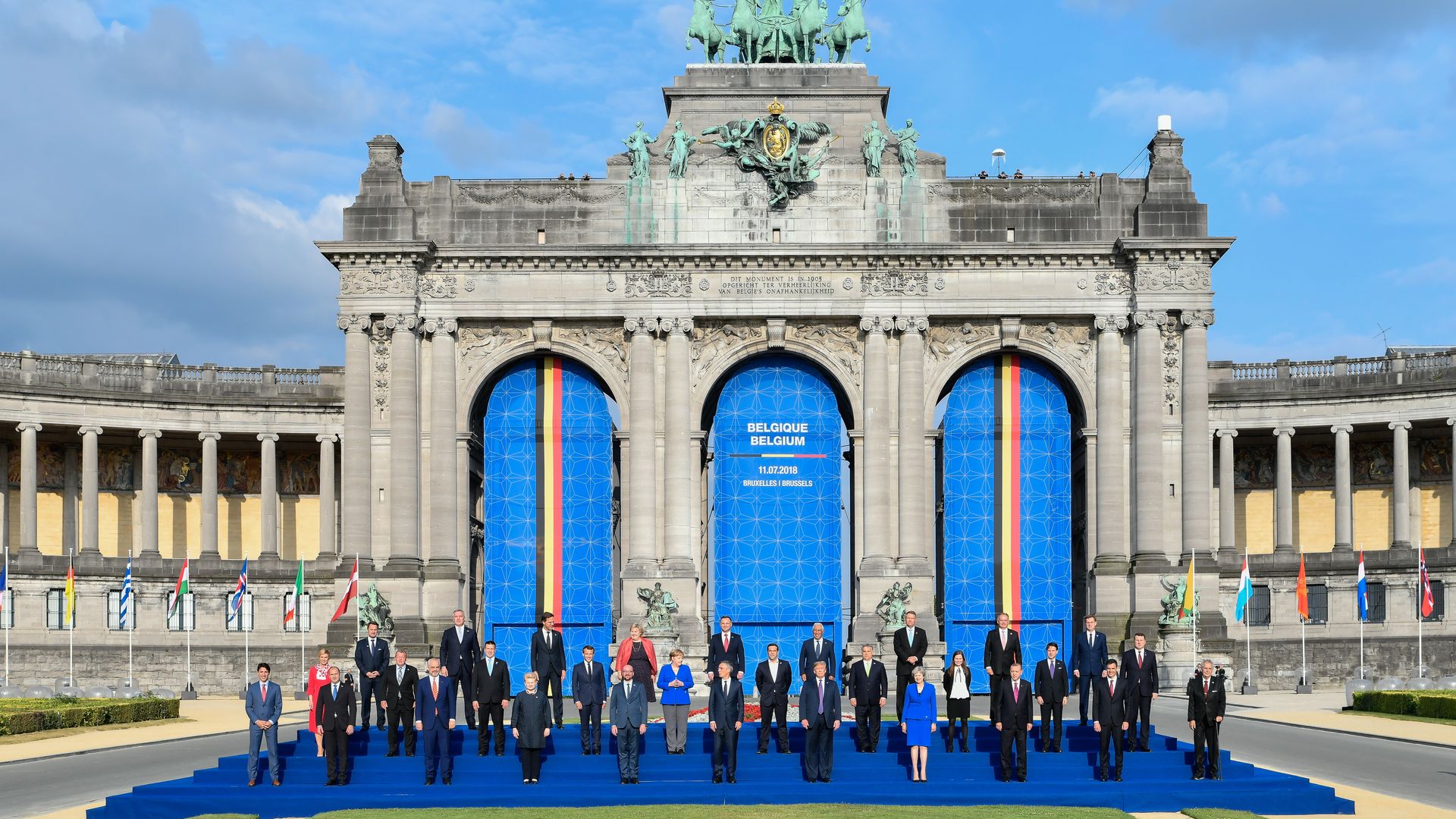Jul 12, 2018 - Politics & Policy
Expert VoicesRhetoric aside, NATO's strategic logic remains sound
Add Axios as your preferred source to
see more of our stories on Google.

NATO heads of state in Brussels at the 2018 NATO summit. Photo: Julien Mattia/Barcroft Media via Getty Images
